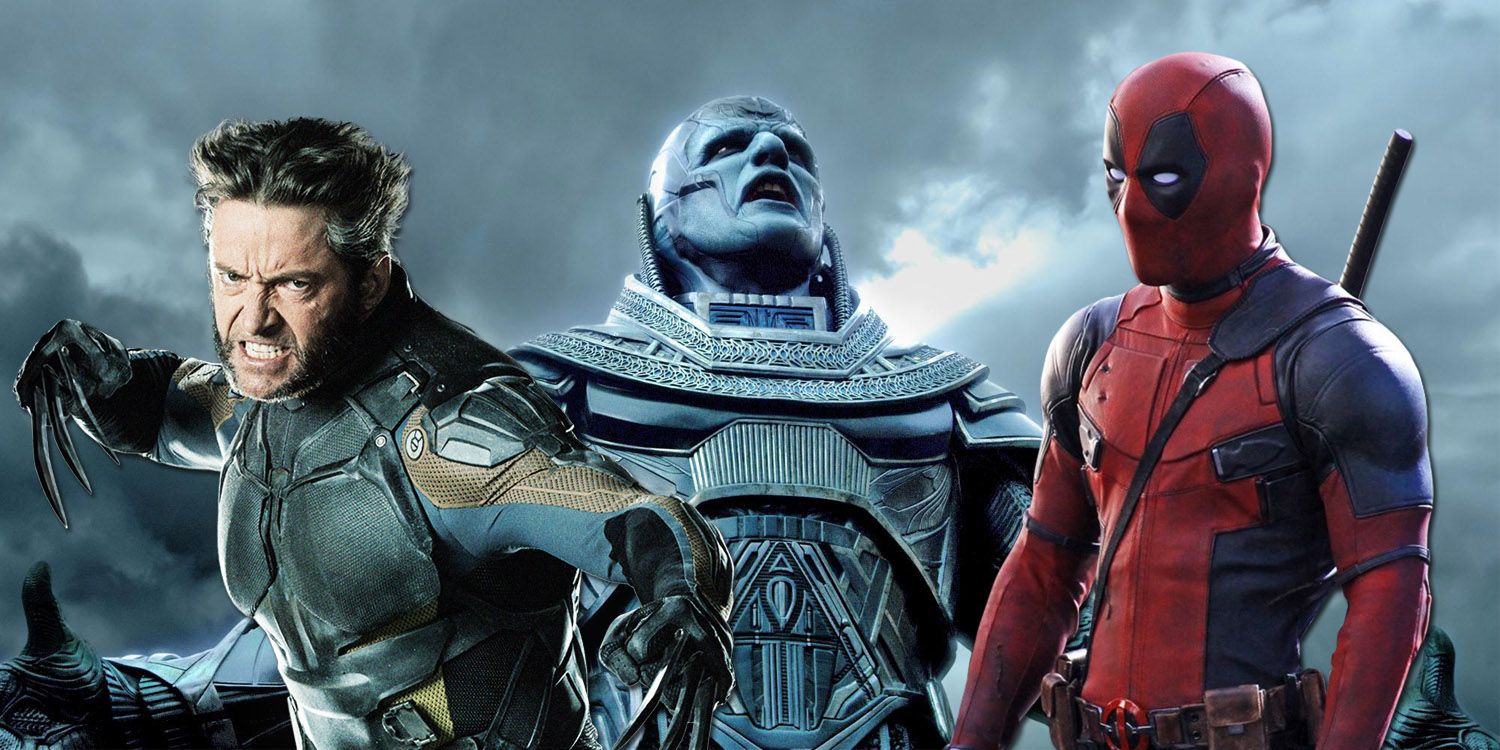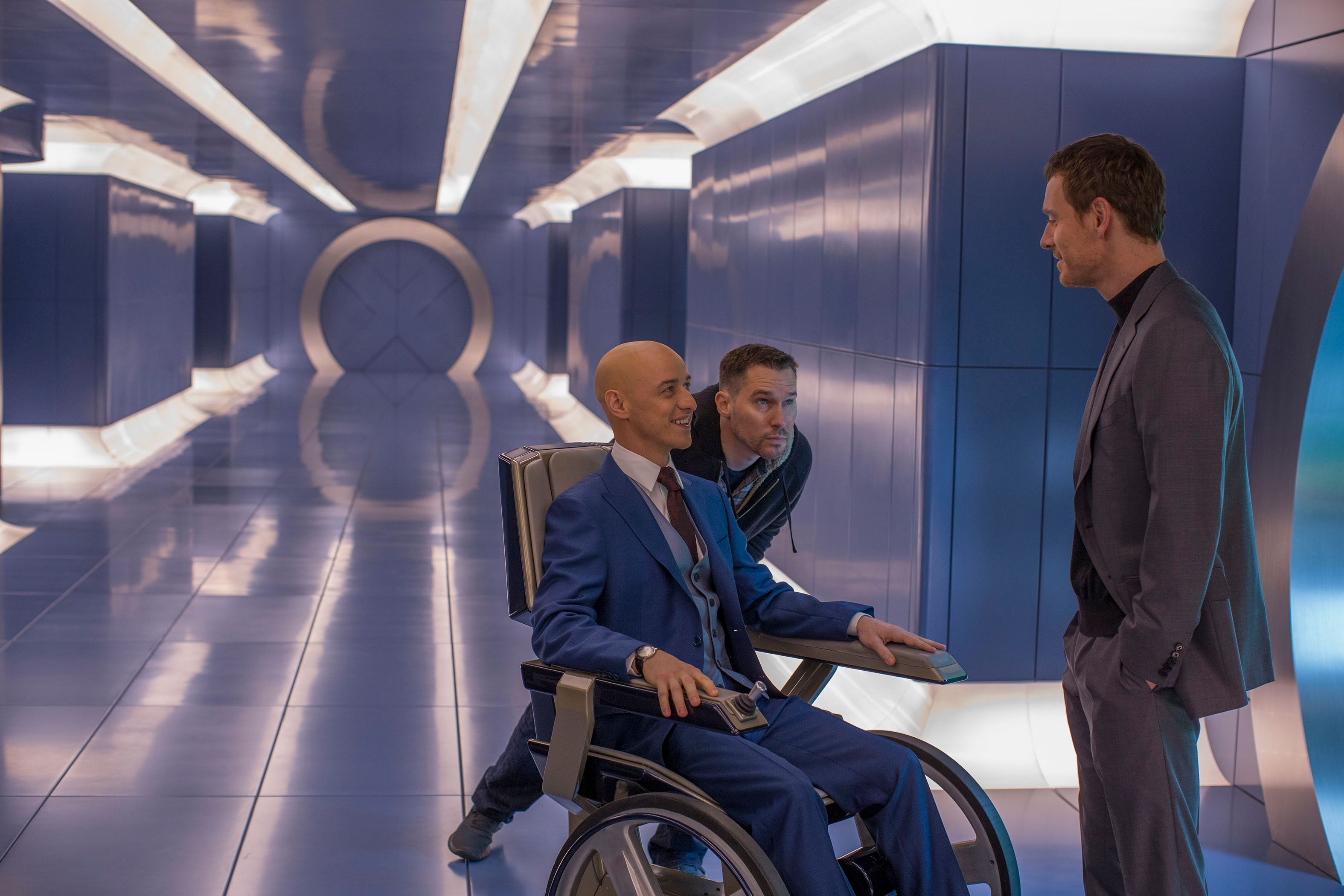X-Men: Days of Future Past helped relaunch, in a sense, the X-Men franchise when it opened in theaters in 2014. It was a milestone achievement for the franchise, bringing back original director Bryan Singer alongside the original cast who in an unprecedented fashion in the genre, were able to share the screen with younger versions of themselves who were introduced a few years earlier in X-Men: First Class.
This film was a hit among critics and set box office records for the franchise, ensuring that the X-Men could still be unique and relevant in an era when blockbuster comic book adaptations are opening in theaters every few weeks. But Days of Future Past, did more than bring back familiar faces. It introduced what may be the most useful plot device a film franchise can have, one that can be used to erase, replace, improve, even re-tell any story. Bryan Singer, as he told our own Andrew Dyce when he visited the set of X-Men: Apocalypse, can do whatever he wants now thanks to time-travel. But what does that mean for all the upcoming X-Men films and spinoffs, and how can they then connect?
What's occurring now in the X-Men movies, notably in the '70s segments of X-Men: Days of Future Past and now the '80s explored in X-Men: Apocalypse did not occur in the past when we we first met Charles Xavier and his mutants in the original 2000 film. It's a different timeline but as Bryan Singer explains when describing the time-travel theory this franchise embraces, the future destination points will always remain similar.
Simon Kinberg spoke on this point while we were on the set of X-Men: Apocalypse, confirming that things can and will be different in this new timeline:
"It’s not leading necessarily toward exactly where we found Patrick Stewart and the X-Men at the beginning of X-Men 1. There are some things that lead in that general direction, that was part of the philosophy we had at the end of Days of Future Past is that you can’t fully change the course or current of the river, but you can just divert it a little bit, and we diverted it a little bit. So some things will be surprises; people could die that were alive in X-Men 1, 2 and 3, or people could survive that died during 1, 2 and 3. In terms of being difficult, I don’t think it felt difficult because the world was more open, because it felt like we were still following the stories of our main characters. We imagine this like a trilogy of stories of Charles, Erik, Hank, and Raven and so we really were trying to tell what is the continuation and in some ways completion of their character arcs that we began in First Class, without thinking so much about how it links to the year 2000. It was really about these people who began in some ways as friends or strangers, became friends, became enemies, became lovers, became all of this—how do you complete that story and in some ways sort of bring the family back together in this film?"
With Deadool kicking off 2016's slate of comic book films, Gambit beginning production in March, and Wolverine 3 shooting later this year, how do these spinoffs connect to what came before and what will happen in X-Men: Apocalypse? Kinberg - who's producing all of them and managing the larger continuity of Fox's Marvel properties - confirms that these modern-set spinoffs take place in the world and timeline, after these events, a world where mutancy is known and accept, where Magneto dropped a stadium on the White House and where Apocalypse will try to annihilate much of the world.
"Well [X-Men: Apocalypse] takes space chronologically before those other films, so it’s more like those films have to acknowledge this than we acknowledge Gambit, Deadpool, or Fantastic Four or anything else that exists within the sort of Fox/Marvel universe. But I work on all of those films in one capacity or another, either as a producer on all of them and as a writer on Fantastic Four and this movie, so I’m certainly aware of all the different stories we’re telling at the same time, and they all are part of a larger fabric now, and so the world of Deadpool, the world of Gambit exists in a post-Days of Future Past post-Apocalypse world where all of these stories are the same as our shared history. The same way that each of us of different ages knows about Nixon and knows about Reagan and knows about 9/11, our fictitious events like the stadium dropping on the White House in 1973 is part of the world in which Gambit, Deadpool, Wolverine on forward exists.
This doesn't mean all future X-Men projects will embrace this new timeline. The franchise has historially been problematic in following its own established continuity, but with X-Men: Days of Future Past introducing the ultimately convenient plot device in time-travel, none of that matters. Every movie could be in a slightly tweaked timeline/universe from the others. Want a character back? No problem. Recast? Sure.
Next Page: Days of Future Past's Happy Ending is NOT Where This Is Going...
Later in the day on set, a very happy (after a wonderful day of shooting) Bryan Singer spoke excitedly and candidly about how this series, one that he started nearly two decades ago, can uniquely reboot itself, potentially over and over again, and all of that can still be considered "canon" because of what that means in the world of the X-Men. How did that - and the limitless possibilities now available - affect the development of X-Men: Apocalypse?
"Again, fucking with the reboot idea. I get to take control and reboot my own movie. I rebooted the universe so now anything can happen. So here's the plan, in my head, again giving away the plan because of the alcohol- The soda water. What happens when you use Days of Future Past to erase movies like X1, 2 and 3, yes you can erase those events that occurred, but I also was very adamant about having what we call 'The TiVo Scene' - The scene in that room with all the video cameras in Days of Future Past, I call it the TiVo scene.
'I developed this piece of technology that records television.' The point is, time's immutability. The idea that time is like a river. You can splash it and mess it up and throw rocks in it and shatter it but it eventually kind of coalesces and this is, again, theories of quantum physics. It's all based in quantum physics. So what I'm doing with these in-betweenqueels is playing with time's immutability and the prequel concept, meaning that yes we erased those storylines and anything can happen. That means the audience goes into the movie thinking that anything can happen. I mean anything, anyone could die. Any possibility could occur, but characters are still moving towards their immutable place.
Jean and Scott, are they meant to be together? Is Scott this guy who hates schools, who hates authority, destined to become a leader? You don't know. Is Jean ever going to discover the full potential of her power? You don't know, but we move in those directions character-wise but then we have the freedom story-wise to do whatever the fuck we want because we erased those three movies. So it's an amazing opportunity. It's an amazing filmmaking opportunity that nobody has done - well, I did with Days of Future Past and it enables me to do that. I can do anything I want. The prequel, you don't know where it's going and yet you do kind of know where you want it to go, where you want to see those characters end up, and that's the beauty of it, of Days of Future Past, of what it did for me. That's why I fought so hard to make sure we have that Beast, Hank McCoy talk about the theory of time's immutability, because that defines what I'm doing with this universe and with these prequels to X1, 2 and 3 which are erased or are they not? Does that make any sense?"
Given the idea of immutability of the larger timeline, what does that mean when it comes to the final scene of X-Men: Days of Future Past when Logan wakes up in a happier future and sees the older, original X-Men enjoying what appears to be a "happy ending"? Does that mean all the movies must lead to that result?
"Time can always be fucked with, we've now learned that. We've now learned that once you alter time that could be the future, but I don't believe if you look at all the X-Men movies and Days of Future Past, I don't believe that's definitive."
Simon Kinberg said earlier in the day that it was definitive, but Singer took the opposite stance, explaining that anything can still change:
"I'll kill any of those characters any day I want. They're all fair game. Anything can happen. When two things are happening simultaneously in quantum physics it's whats called the Super Position and when the Observer finally observes the outcome that's called the 'Collapsing of the Super Position' which is what happened when Wolverine woke up and saw all the happiness.
So, yes, that is the outcome we hope for. That is the outcome we aspire to and that's the outcome we are moving towards, but we saw in Days of Future Past another dark world. What says that can't happen again? What says the awakening of a being that has such power and can acquire the power to destabilize that? So anything is possible. That's what we'd like to think happen, that's what Simon would like to think is a good outcome, but to me it's fair game."
It's a great way to look at it, acknowledging that these limitations (of a defined outcome in the future) don't exist. Otherwise, the conclusion of each chapter in the larger universe can be somewhat predicted. Singer and any other director can do what they want, tell their own stories with characters and still be able to do the unexpected to take the audience on a ride. One that can go anywhere. Even space! But for now:
Deadpool, Gambit, and Wolverine 3 take place in the same timeline (albeit much later) as X-Men: Days of Future Past and X-Men: Apocalypse— Rob Keyes (@rob_keyes) January 21, 2016
Next: New Bryan Singer X-Men Movie Shooting in Montreal For 2018 Release
Since the dawn of civilization, he was worshiped as a god. Apocalypse, the first and most powerful mutant from Marvel’s X-Men universe, amassed the powers of many other mutants, becoming immortal and invincible. Upon awakening after thousands of years, he is disillusioned with the world as he finds it and recruits a team of powerful mutants, including a disheartened Magneto (Michael Fassbender), to cleanse mankind and create a new world order, over which he will reign. As the fate of the Earth hangs in the balance, Raven (Jennifer Lawrence) with the help of Professor X (James McAvoy) must lead a team of young X-Men to stop their greatest nemesis and save mankind from complete destruction.
Deadpool opens in theaters February 12, 2016; X-Men: Apocalypse on May 27, 2016; Gambit sometime in 2017; Wolverine 3 on March 3, 2017; and an unannounced X-Men film on July 13, 2018. The New Mutants is also in development.


